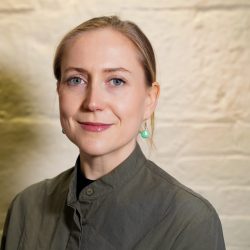Project overview
Modern methods of construction (MMC) using off-site manufacturing of timber have the potential to reduce housing construction times, lower the carbon footprint of buildings and minimise waste by optimising material use. Timber waste generated in Australia is still significant and its recycling rate is low when compared to other construction and demolition wastes such as concrete. Opportunities to minimise waste generation or reduction of the waste volume going to landfill during various steps of timber lifecycle should be amplified. Yet, circular economy timber is yet to receive warranted scrutiny.
Increasing the use of timber in mid-rise residential housing offers an opportunity to ground the development of circular economy practices and policy development and help deliver more resilient, sustainable and affordable housing.
This project will translate findings and leverage networks established during the conduct of the completed AHURI Inquiry into Circular Economy Housing. It will evaluate the impact of circular economy strategies on the use of timber in multi-unit residential development using a whole-of-life approach.
Project activities
The project is being delivered through 3 staged activities:
1. Scoping engagement: This phase will aim at mapping international and Australian circular economy practices with timber buildings, including key actors and projects; and discuss key related themes (e.g., supply chains, procurement, waste/reuse, material passports, regulations) with international/local practitioners.
2. Policy and practice roundtable: The roundtable will engage practitioners from the wider residential construction industry in Australia for a discussion on the current state of play and opportunities for stakeholders and policy-makers to improve circular economy outcomes, as well as blind spots and challenges of timber reuse across building whole-of-life.
3. Industry concept paper: A paper will be developed to determine the adequacy of whole-of-life approach to assess how circularity can be implemented; capture learnings on barriers and pathways to low-carbon, circular buildings and; map out the potential of timber developments that incorporate existing structural components.
This project leverages capabilities and networks from the AHURI Inquiry into Circular Economy Housing, the ARC Industrial Transformation Research Hub TREMS (STEM college) and the Sustainable Building Innovation Laboratory (PCPM).
Funding
This project is funded by the RMIT 2023 Strategic Impact Fund and supported by the Sustainable Development Technologies and Systems and Urban Futures Enabling Impact Platforms (EIPs).
Contact
If you would like to know more about this project, please contact Dr Louise Dorignon via louise.dorignon@rmit.edu.au.








